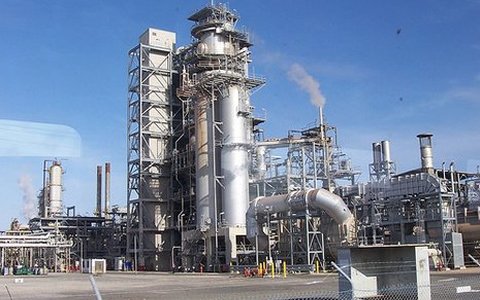We live in a world charged with the industrialization of energy. Ghana became an exporter of oil with the development of the Jubilee Field in 2010, but prior to that, Tema Oil Refinery (henceforth, TOR) commenced operations in 1963 - then referred to as Ghanaian Italian Petroleum (GHAIP) Limited.
After Government of Ghana (GoG) officially bought all shares of TOR in the 1970s, it started out as a tolling facility until 1996 when it shifted its business strategy to enable TOR acquire crude solely and market refined products to generate revenue.
The significant contributions of oil refineries to a country’s economic growth, particularly one that exports crude oil like Ghana, cannot be overstated.
A look at today’s news where the current government intends to settle for a 22-million-dollar lease of TOR to a private corporation for 6 years is only a benign gesture which belittles the vision of Dr. Kwame Nkrumah in his 1961 agreement with ENI Group.
Situations such as this begs the questions; how did we get here? and more importantly, what is a viable permanent solution to the challenges TOR faces today?

The problems of TOR are very evident – (i) its current business strategy to rely on credits and loans to finance its operations has exposed the company to oil price risks; (ii) the infrastructure of the TOR has been underutilized leading to a higher deterioration rates of expensive machinery; (iii) the debt structure of the company is mainly denominated in foreign currency, thus is highly susceptible to the depreciation of the Ghanaian cedi; (iv) losses in trading due to the change in business strategy; and (iv) poor management of contracts.
In my expert opinion, the following steps should be initiated for the success of TOR:
1. Partial Privatization: The ownership structure of TOR should aim to involve multiple stakeholders, including private investors (both foreign and domestic), while maintaining a significant government stake. Government should retain a controlling interest to ensure strategic oversight and protect national interests. The remaining shares can be offered to private investors through an initial public offering (IPO) or other mechanisms. Private investors can bring in operational expertise and management capabilities that will help optimize TOR’s efficiency and performance. Investors should therefore be thoroughly selected based on their expertise and experience within the oil and gas industry so they can add value and provide innovative solutions going forward.
2. Capital Injection: The proceeds from the sale of shares to private investors can provide TOR with much-needed capital for modernization, infrastructure upgrades, and technological advancements. This influx of funds will help TOR improve its operational efficiency, expand its production capacity, and meet international standards.
3. Corporate Governance: Together with privatization, strong corporate governance practices should be implemented. This includes establishing an independent board of directors with representatives from both government and private investors. The board should be responsible for overseeing TOR’s strategic direction, ensuring transparency through regular reporting, auditing, and safeguarding the interests of all stakeholders. This will help to reduce the influence of politics within the affairs of TOR.
4. Social Impact and Local Participation: In the process of privatization, consideration should be given to social impact and local participation. This can include initiatives such as community development programs, job creation, and local supplier engagement. By involving local communities and stakeholders, TOR can contribute to regional development and create a positive socio-economic impact.
The success of TOR relies on the collective efforts and collaboration of various stakeholders. Evidently political influence has failed us so far, it will be in the best interest that government implement the proposed solutions so the nation can maximize the benefits Tema Oil Refinery can offer.
******************************
The author, Fawan Issah, is an energy analyst.
Latest Stories
-
LOLA Hair and Beauty College officially launched to promote TVET
15 minutes -
Minority condemns sacking of TTH CEO, demands Mahama reprimand Health Minister
15 minutes -
Extraordinary photos from the funeral of Pope Francis
41 minutes -
Pope Francis laid to rest after Vatican funeral service
58 minutes -
Our polling station executives and grassroots are our greatest assets, I thank them – Bawumia
1 hour -
Trump questions Putin’s intentions after meeting with Zelensky ahead of Pope’s funeral
1 hour -
IACG targets 1,000 market traders and artisans in Western, Western North Regions as part 2025 Micro Business Clinics
1 hour -
Ghanaians should be worried about undermining the judiciary – Ex-Deputy A.G.
1 hour -
2024 Election: Our own members attacked the party and the NDC played them back against us – Bawumia
1 hour -
Incentive packages needed to tackle staff attrition in health sector – Parliament
1 hour -
Let’s give thanks to God for all things – Bawumia declares as he starts ‘Thank You Tour’ in Takoradi
1 hour -
Ghanaians have lost the will to fight ‘galamsey’ – Barker-Vormawor laments
2 hours -
MTN confirms hack; assures customers core systems remain secure
2 hours -
GOC Elections: Evans Yeboah elected treasurer
2 hours -
Threshold for petitioning to remove Chief Justice inadequate – Prof Agyeman-Duah
2 hours

